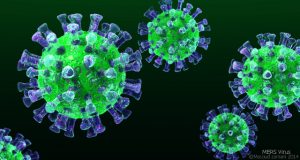Meditation and Exercise Reduce Inflammation Through Different Pathways
By John M. de Castro, Ph.D.
“mindfulness techniques may be more effective in relieving inflammatory symptoms than other activities that promote well-being.” – Science Daily
The immune system is designed to protect the body from threats like stress, infection, injury, and toxic chemicals. One of its tools is the Inflammatory response. This response works quite well for short-term infections and injuries. But when inflammation is protracted and becomes chronic, it can itself become a threat to health. It can produce autoimmune diseases such as colitis, Chron’s disease, arthritis, heart disease, increased cancer risk, lung disease, sleep disruption, gum disease, decreased bone health, psoriasis, and depression.
Needless to say, chronic inflammation can create major health problems. Indeed, the presence of chronic inflammation is associated with reduced longevity. So, it is important for health to control the inflammatory response, allowing it to do its job in fighting off infection but reducing its activity when no external threat is apparent. Of course, it is far better to prevent chronic inflammation in the first place than to treat it later. Mind-body techniques such as yoga, Tai Chi and meditation have been shown to adaptively reduce the inflammatory response.
In today’s Research News article “Differential Reduction of IP-10 and C-Reactive Protein via Aerobic Exercise or Mindfulness-Based Stress-Reduction Training in a Large Randomized Controlled Trial.” (See summary below or view the full text of the study at: https://www.ncbi.nlm.nih.gov/pmc/articles/PMC6777863/), Meyer and colleagues recruited healthy sedentary adults aged 30 to 60 years. They were randomly assigned to one of three conditions, exercise, meditation, or wait-list control. The exercise and meditation groups received 8 weekly 2.5-hour sessions and practiced daily for 20 to 45 minutes. The exercise condition consisted of warm-up, aerobic exercise, and cool down. The meditation group received the Mindfulness-Based Stress Reduction (MBSR) program consisting of meditation, yoga, body scan, and discussion. The participants maintained weekly activity logs and were measured before and after the intervention and 17 weeks later for body size, exercise, and the blood inflammatory biomarkers Interleukin-6, Interferon gamma-inducible protein-10 (IP-10) and C-Reactive Protein.
They found that during the follow-up period both C-Reactive Protein and Interferon gamma-inducible protein-10 (IP-10) levels were lower for all groups, but the meditation group had significantly lower levels of C-Reactive Protein at the 17 week follow-up while the exercise group had significantly lower levels of Interferon gamma-inducible protein-10 (IP-10) at the post training and 17 week follow-ups. As expected, during follow-up the exercise group had significantly more exercise practice while the meditation group had significantly more meditation practice, but these increases were not significantly related to the amount of change in the inflammatory biomarkers.
These results suggest that both exercise and mindfulness practice reduce the levels of biomarkers of inflammation. But they appear to do so through different anti-inflammatory mechanisms. It has been well-established that both exercise and mindfulness practice improves physical and psychological health, and reduce the physical reactions to stress. The present results suggest that these improvements in health may at least in part be accounted for by reduction in the inflammatory response.
It is clear from this study that engaging in either exercise or mindfulness practice is beneficial for the health and well-being of the practitioner. Since these practices appear to work via different mechanisms it would seem possible that they would have additive effects where engaging in both would have increased effectiveness in decreasing the inflammatory response and improving health and well-being. This remains for future research.
So, meditation and exercise reduce inflammation through different pathways.
“mindfulness meditation training improves your brain’s ability to help you manage stress, and these changes improve a broad range of stress-related health outcomes, such as your inflammatory health,” – David Creswell.
CMCS – Center for Mindfulness and Contemplative Studies
This and other Contemplative Studies posts are also available on Google+ https://plus.google.com/106784388191201299496/posts and on Twitter @MindfulResearch
Study Summary
Meyer, J. D., Hayney, M. S., Coe, C. L., Ninos, C. L., & Barrett, B. P. (2019). Differential Reduction of IP-10 and C-Reactive Protein via Aerobic Exercise or Mindfulness-Based Stress-Reduction Training in a Large Randomized Controlled Trial. Journal of sport & exercise psychology, 41(2), 96–106. doi:10.1123/jsep.2018-0214
Abstract
Exercise and meditation improve health and well-being, potentially through decreasing systemic inflammation. In this study, healthy adults (N =413) were randomized to 8 weeks of training in aerobic exercise, matched mindfulness-based stress reduction, or wait-list control. Three inflammation-related biomarkers (C-reactive protein, interleukin-6, and interferon-gamma-inducible protein-10) were assessed preintervention, directly postintervention, and 17 weeks later. Within-group analyses found that exercise participants had decreased serum interferon-gamma-inducible protein-10 postintervention and 17 weeks later, whereas C-reactive protein was lower in mindfulness-based stress-reduction participants 17 weeks postintervention only. Self-reported physical activity or amount of meditation practice did not predict biomarker changes. This study suggests that (a) training in aerobic exercise can lower interferon-gamma-inducible protein-10, a chemokine associated with interferon activity and illness, and (b) training in mindfulness meditation may have a delayed effect on C-reactive protein, an important inflammatory biomarker. The findings highlight the likelihood of multiple, distinct pathways underlying the health-promoting effects of these lifestyle interventions.
https://www.ncbi.nlm.nih.gov/pmc/articles/PMC6777863/
